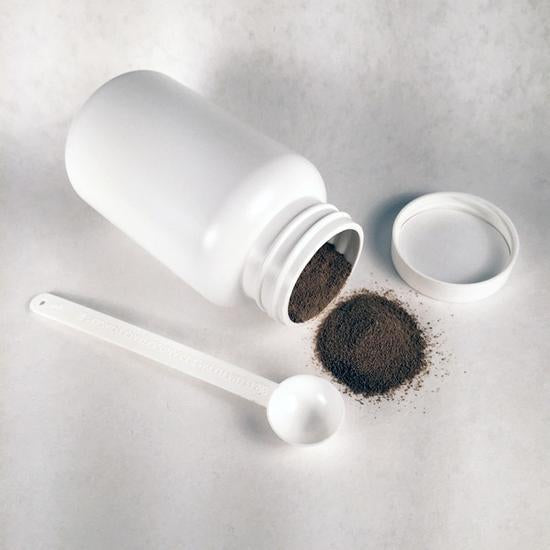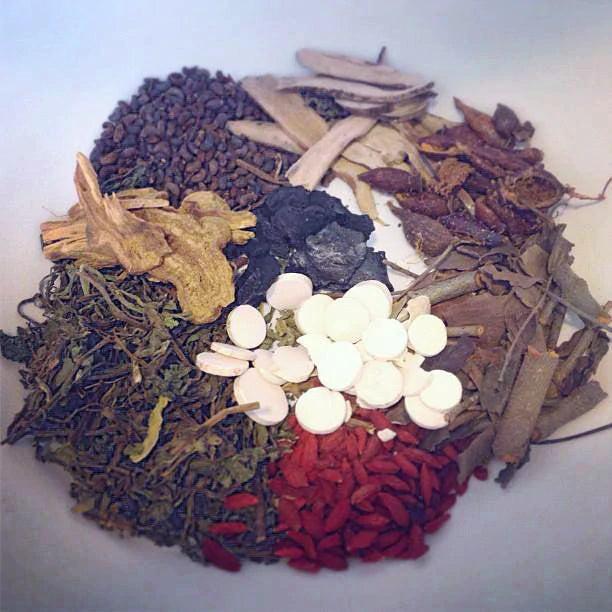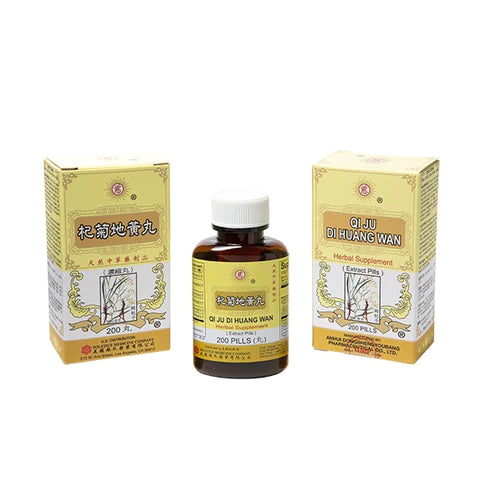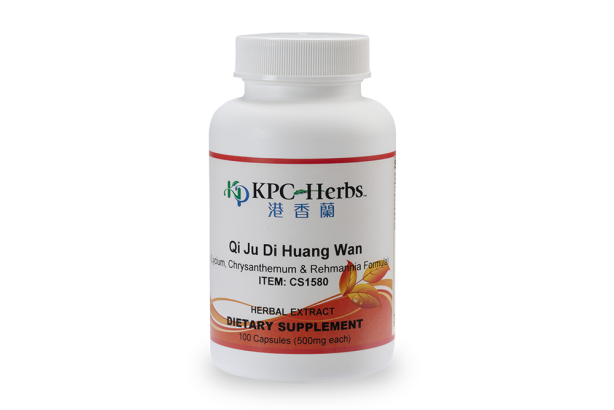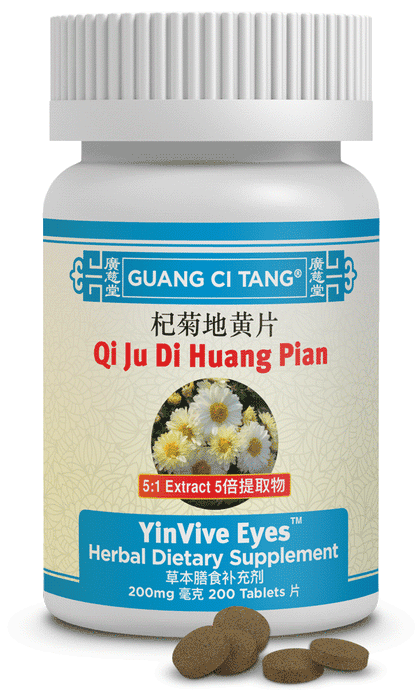
Qi Ju Di Huang Wan 杞菊地黃丸
Lycium Fruit, Chrysanthemum, and Rehmannia Formula
Chi Chu Ti Huang Wan, Kokiku Jio Ganaka
Safety of QI JU DI HUANG WAN
Use cautiously with Spleen Deficient Dampness.
Pregnant and nursing women should consult their health care providers before using any nutritional supplement.
Traditional Chinese Medicine is powerful and reliable, but it can be complex. As TCM is not based on symptoms alone, self-diagnosis and self-treatment aren't recommended. Best to start a low cost online-herbal-consultation.
QI JU DI HUANG WAN Ingredients
| Shu Di Huang - Steamed foxglove root Shan Zhu Yu - cornelian cherry fruit Shan Yao - Yam Root Ze Xie)- water plantain rhizome Fu Ling - poria mushroom Mu Dan Pi - tree peony root bark Gou Qi Zi - goji berry Ju Hua - chrysanthemum flower |
Radix Rehmanniae Preparata - 20% Fructus Corni Officinalis - 10% Rhizoma Dioscoreae Oppositae - 10% Rhizoma Alismatis Orientalis- 10% Sclerotium Poriae Cocos - 10% Cortex Moutan Radicis - 10% Fructus Lycii Chinensis- 15% Flos Chrysanthemum - 15% |
QI JU DI HUANG WAN Dosage and Administration
Tablets: 5 tablets,2 to 3 times daily
Capsules: 2-4 capsules, 3 times a day
Teapills: 8 teapills, 3 times a day
Granules: 1-3 grams, taken 2-3 times a day
Whole Herbs: Good quality herbs can be boiled twice. Using a container made of ceramic, glass, or stainless steel (no aluminum, iron or copper) boil 1 packet of herbs in 2-3 quarts of water. Boil for 30 minutes or until 2 cups of medicine remain. Strain herbs; save and refrigerate for a second boiling. Drink 1 cup in the AM. And 1 cup in the PM. If desired, repeat the following day, using the saved herbs from the refrigerator.
* What’s the Difference Between, Qi Ju Di Huang WAN, PIAN, TANG, SAN, SHUI and GAO?
- PIAN = Tablet (modern looking pill)
- WAN = Pill (old-style or handmade pill, or black teapill)
- TANG = Water Decoction (boiled whole herbs)
- SAN = Powder (milled or granulated)
- SHUI = Tincture (extract with alcohol or other solvent)
- GAO = Paste (topical unguent or plaster)
*These statements have not been evaluated by the US Food and Drug Administration. These products are not intended to diagnose, treat, cure or prevent any disease.

